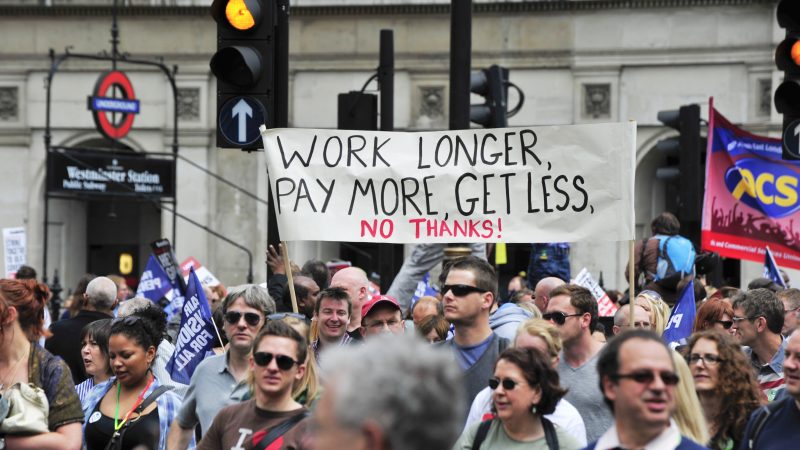UK
‘Progressives always want more, but the New Deal will help tame capitalism’

Prospect does not affiliate to a political party, and we seriously try to work across the political spectrum. If I could say anything positive about the Conservatives in government then I would, but of late, it has become impossible. The mismanagement of public services and those who work in them, the labour market deregulatory fixations and the dismal attitude to trade unions leaves no space to explore any common ground.
That is why it is entirely consistent with our political independence to believe that change in government after the next general election is in the best interests of Prospect members. That belief is founded on analysis, not the transactional expectations arising from affiliation. Prospect members are a demanding audience, used to assessing arguments and data, and therefore so is their union.
I am always struck by how elements of the labour movement have a predisposition to being disappointed with the Labour Party. It’s both baffling and dangerous. Progressives always want more. That’s our nature, but our relentless drive for fairness and progress must exist in credible debate that takes account of the world we live in, not the one we aspire to longer term.
Saying Britain is broken runs the risk of ignoring what we do achieve, but sadly, it’s fair to say that it feels broken for millions of citizens in various ways. That is the landscape that Labour is dealing with, and against that backdrop, Rachel Reeves’ Mais speech will, I believe, be seen as the starting point for long-term renewal if its economic prescription is given the chance.
Reeves’ Mais speech could be a starting point for long-term renewal
“Securonomics advances not the big state but the smart and strategic state.” This signals a role for the state that will never be part of the belief system of neoliberals. It challenges notions that the state must own everything, but it also provides the framework that the state must be on the field, stimulating growth, driving productivity and ensuring fair shares.
It is anchored here: “Governments and policymakers are recognising that it is no longer enough, if it ever was, for the state to simply get out of the way, to leave markets to their own devices and correct the occasional negative externality.”
Prospect is up for this conversation, as our civil service members are key to the mission of any government determined to reimagine an active and enabling state for the 21st century. Most of our members are in the private sector, often in strategic firms and industries that will be critical to the UK’s future. Therefore, focus on outputs, skills and long-term delivery that leaves behind short-term over-reliance on markets is something we can engage with.
This Mais speech was not a eulogy of 1980s ‘sound money’ economics, but you must be willing to describe your macroeconomic stabilisers and overall philosophy or run the risk of markets taking you on. This is a fact of economic life, and the consequences of Liz Truss’s government of September 2022 remind us of that.
Reeves has shown she gets the issues – and the approach needed
But what is most welcome is the microeconomic focus on supply, the role of the firm and how that exists within a labour market regulatory framework that makes capitalism succeed but also share.
And for all the doubters who are more comfortable complaining about what is not in the New Deal for Working People as opposed to welcoming what is in it, the simple fact is that those provisions will start the reversal of the untrammelled authority that British capitalism has used to compete purely on cost inputs, as opposed to innovation and long-term thinking.
You cannot change it all in 100 days. Welcome commitments to early change should breed the patience to consider other issues carefully. For example, worker status, the balance between genuine self-employment and exploitation is not easily resolved, and this is just one issue that needs tripartite debate and consensus.
Our labour market is broken. Wages are depressed. Economic security is defined by a lack of law not an over-burden. We do not have the convening spaces to discuss economy-wide objectives, future direction and the necessary compromises between capital and labour. The commitments to infrastructure renewal and industrial strategy, if well-handled, will be as welcome to business as trade unions.
The Mais lecture suggests a willingness to learn from past mistakes of governments of the left and right. It is founded on the necessary flexibility of ideas, given the complex world we live in, which has shocks just around the corner. But it is plainly underpinned by a desire to ensure working people are not just ‘factors in production’.
The importance here, especially after the experience of the last decade, is that it demonstrates that Reeves gets both the issues of today and the approach necessary to create a stronger and more resilient future.
No comments:
Post a Comment